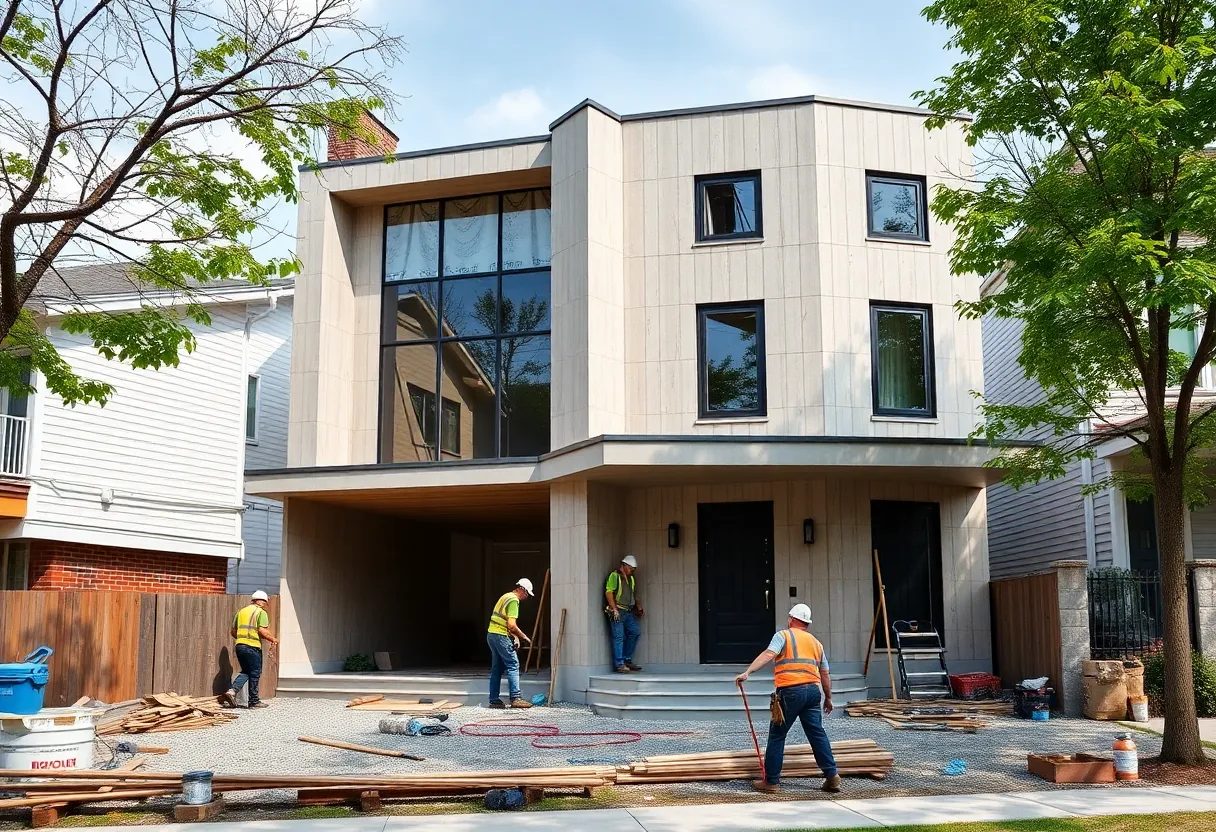News Summary
The city of Quincy has assumed control of Seminary Road, which was previously under Adams County jurisdiction. This decision came after city officials discovered historical documentation gaps that had prevented a formal transfer. The Quincy City Council’s action allows for streamlined maintenance and development projects, ensuring better infrastructure management within the city. This change underscores Quincy’s commitment to improving local roads and aligning jurisdictional boundaries with physical realities.
Quincy Resolves Jurisdiction Issue Over Seminary Road After Discovering County Oversight
In a recent development, the city of Quincy has officially taken control of a section of Seminary Road, which lies within city limits but was previously under the jurisdiction of Adams County. This change comes after officials uncovered longstanding documentation gaps related to the road’s administrative oversight, leading to a decision by the Quincy City Council to acquire control of the roadway.
Discovery of County Oversight Within City Limits
The issue originated from an administrative oversight dating back several decades. Quincy officials, through a review of historical records, found that incomplete or missing paperwork had prevented the formal transfer of jurisdiction for this segment of Seminary Road from Adams County to the city. As a result, while the road physically resides within Quincy, the legal authority to maintain and improve it had been inadvertently retained by the county.
The oversight was identified when city engineers examined old records related to infrastructure projects. These records are crucial as they contain detailed information on past construction efforts, maps, and planning documents that assist in current maintenance and future planning efforts.
Official Resolution and City Council Action
On Monday, the Quincy City Council voted to formally assume control of the section of Seminary Road that falls within city limits. The decision mandates the transfer of administrative authority from Adams County to the city, enabling Quincy to directly oversee maintenance, repairs, and improvements on that stretch of road.
This change simplifies decision-making processes for local infrastructure projects and aligns jurisdictional boundaries with physical boundaries within the city limits. The move also reflects a proactive approach by city officials to address and rectify historical administrative oversights that could potentially hinder infrastructure development
.
Role of Historical Records and Data Collection
Supporting this process is the city’s reliance on extensive historical records stored primarily in the Quincy City Hall and the basement of the Quincy City Annex. Quincy’s Engineering Manager, Steve Bange, explained that his department routinely reviews old plans and documents to gather essential data for current and future development projects.
These records include detailed information such as pavement thickness, underground features, and historical layout maps, like those depicting old streetcar tracks. Occasionally, reviewing aged plans reveals unexpected findings that can influence current planning, including uncovering forgotten infrastructure or surface conditions.
However, many of the older documents are fragile physical records that may have been lost, damaged, or discarded over the years. Despite these challenges, the remaining documentation provides valuable insights, informing the city’s efforts to upgrade and maintain local roads.
Implications for Local Infrastructure and Future Projects
The recent transfer of authority over Seminary Road exemplifies Quincy’s dedication to properly managing and improving its infrastructure. Gaining control over this roadway allows the city to implement targeted repairs, safety enhancements, and future expansion plans without the constraints that come with county oversight.
City officials emphasized that this move aligns with their broader strategy to ensure local streets are adequately maintained, and infrastructure projects can proceed with clear jurisdictional authority. The improvement efforts aim to benefit residents by enhancing road quality, safety, and accessibility throughout the city.
Background Context on Jurisdiction and Record Keeping
Historically, jurisdictional boundaries for roads, especially those constructed decades ago, can become misaligned or unclear due to incomplete record-keeping or administrative errors. Over time, documentation related to infrastructure projects has been scattered across various departments and storage locations, occasionally leading to jurisdictional ambiguities similar to the Seminary Road situation.
The city’s effort to rectify Seminary Road’s status reflects a broader trend of municipalities diligently reviewing historical records to ensure accurate jurisdictional management. This process not only streamlines future maintenance and development tasks but also preserves the city’s accountability over its infrastructure assets.
In conclusion, Quincy’s recent actions demonstrate a thorough approach to infrastructure management, showing how historical records and diligent administrative review can resolve longstanding jurisdictional issues while paving the way for improved local infrastructure planning.
Deeper Dive: News & Info About This Topic
HERE Resources
Additional Resources
- Quincy Whig
- Wikipedia: Quincy, Illinois
- KHQA
- Google Search: Quincy Illinois infrastructure
- Chicago Tribune
- Google Scholar: Quincy Illinois historical records
- KHQA
- Encyclopedia Britannica: Quincy Illinois
- World Atlas
- Google News: Quincy Illinois road closure
Author: STAFF HERE WASHINGTON DC
The WASHINGTON DC STAFF WRITER represents the experienced team at HEREWashingtonDC.com, your go-to source for actionable local news and information in Washington, DC, and beyond. Specializing in "news you can use," we cover essential topics like product reviews for personal and business needs, local business directories, politics, real estate trends, neighborhood insights, and regional news affecting the area—with deep expertise drawn from years of dedicated reporting and strong community input, including local press releases and business updates. We deliver top reporting on high-value events such as the National Cherry Blossom Festival, Kennedy Center Honors, and the Washington Auto Show. Our coverage extends to key organizations like the Greater Washington Board of Trade and Destination DC, plus leading businesses in government contracting and technology that power the local economy such as Lockheed Martin and Amazon. As part of the broader HERE network, we provide comprehensive, credible insights into the dynamic landscape of the Washington metropolitan area.




